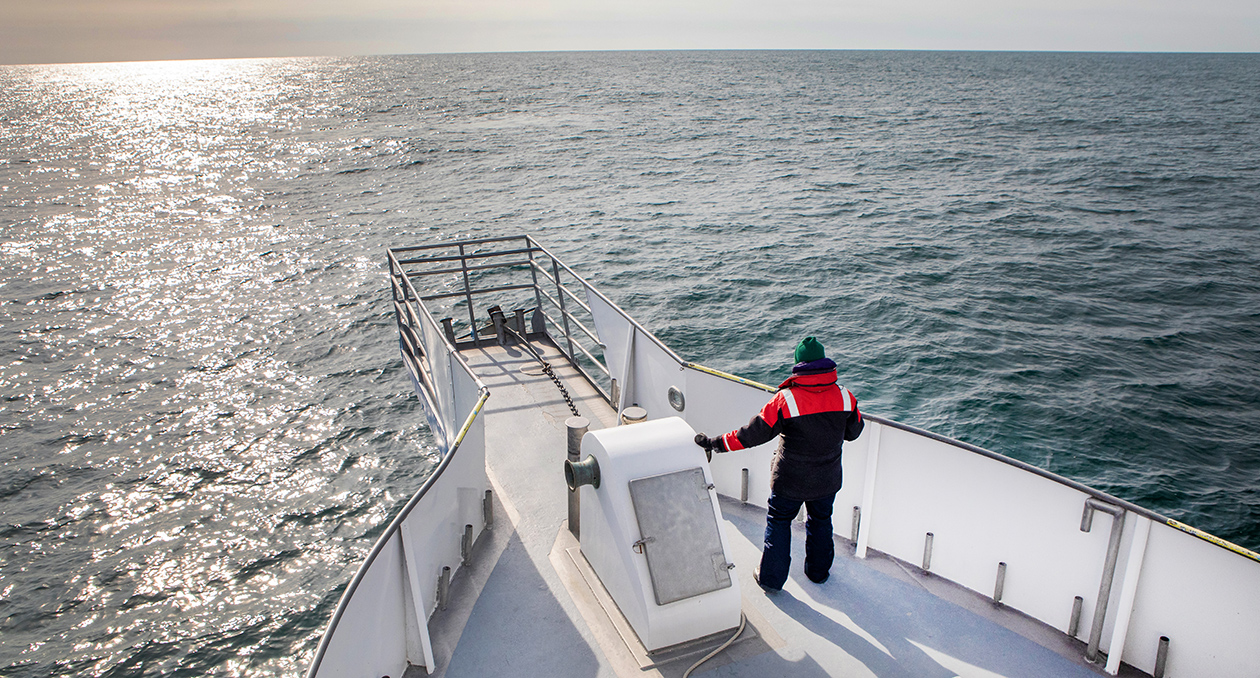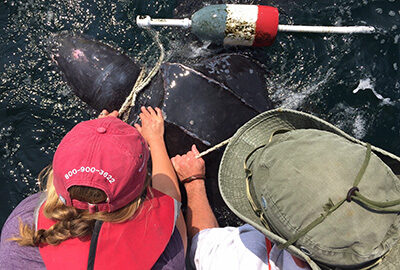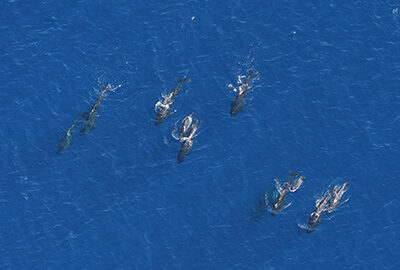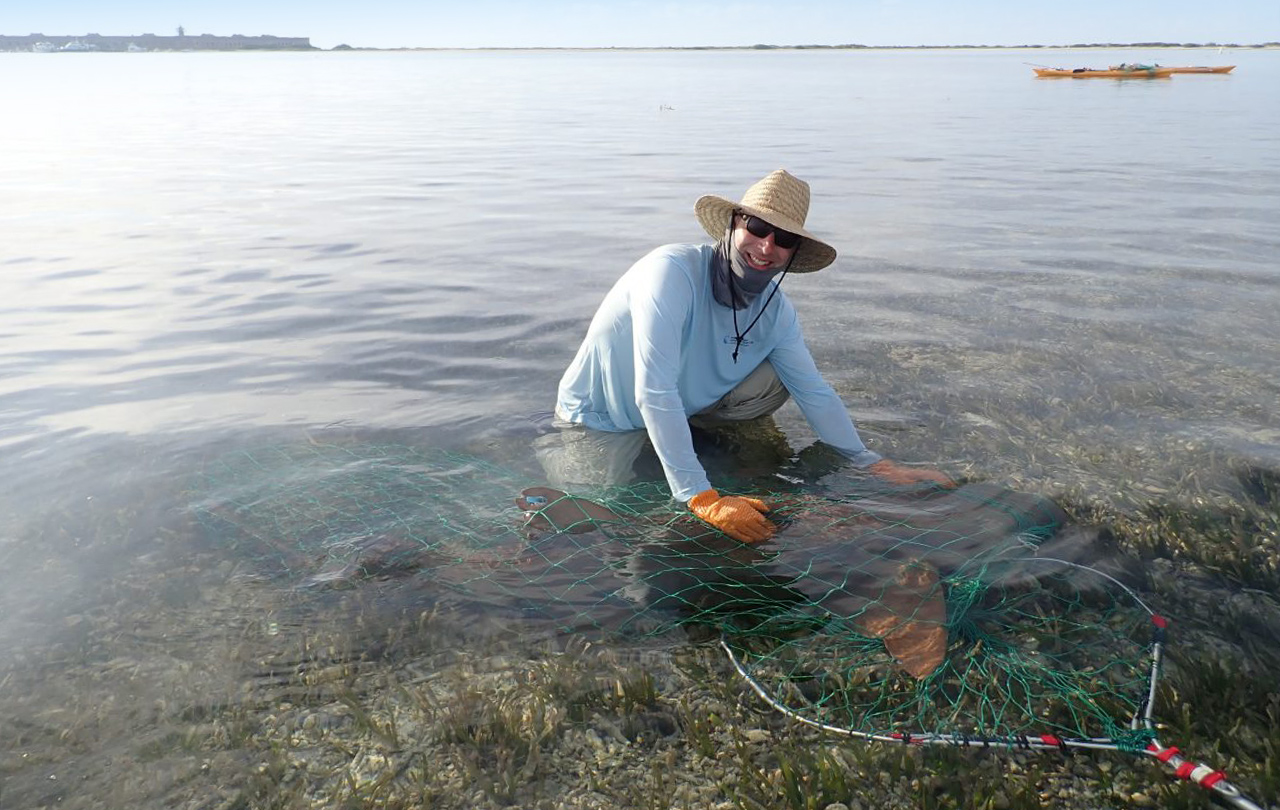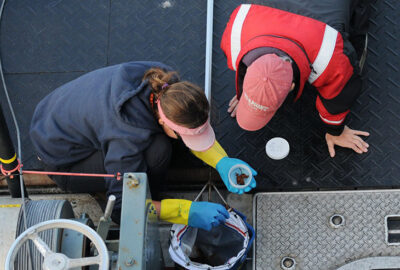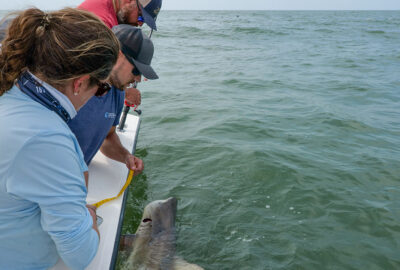Please note: We strongly recommend purchasing your tickets in advance to guarantee entry, as we do sell out on weekends and during school vacation week (April 15–19). A limited number of tickets will be available onsite for walk-up purchases when we open at 9:00.
At the Anderson Cabot Center for Ocean Life, the Aquarium’s dedicated research arm, we use marine science to protect animals and help others use the ocean responsibly.
Transforming Science Into Action
We are working to combat the unprecedented impacts on the ocean from climate change and other human activities.
A world-class team dedicated to ocean conservation science
The Anderson Cabot Center for Ocean Life at the New England Aquarium is composed of more than 40 world-class marine scientists, public policy professionals, and technical specialists who have devoted their careers to improving ocean health.
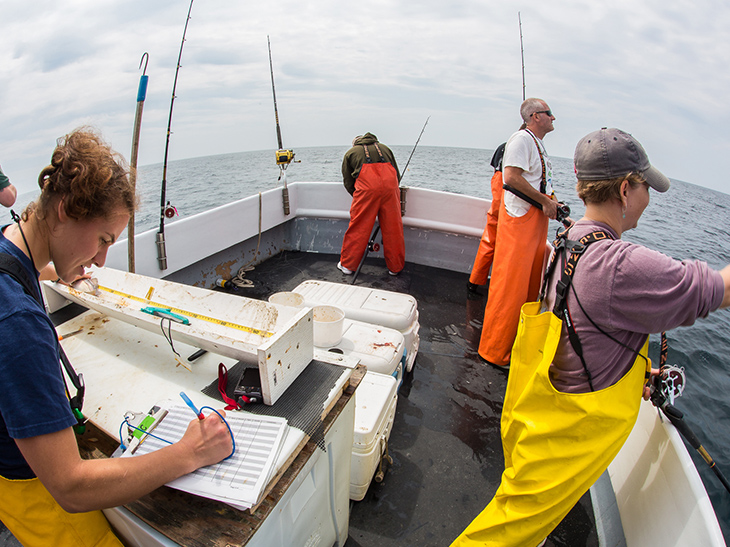
Leading the way in marine conservation research
Within the Anderson Cabot Center for Ocean Life, our research and conservation programs focus on a range of issues, from protecting the critically endangered North Atlantic right whale to responsible ocean management and more.
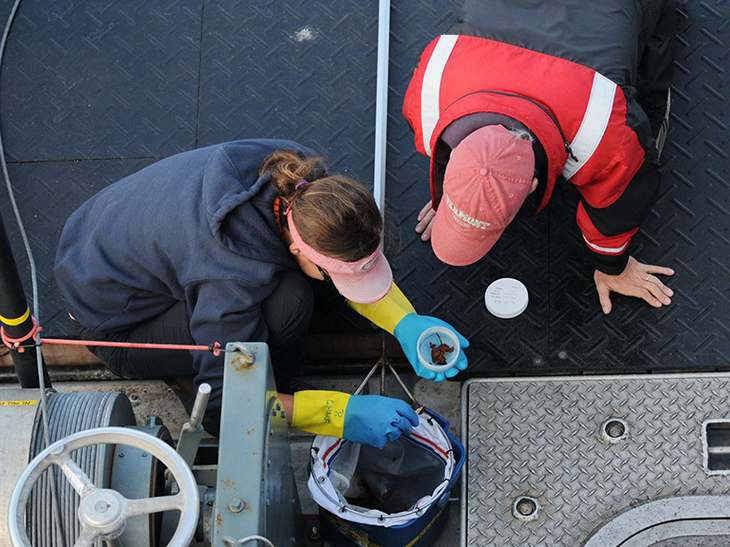
Our Impact
Read the latest news and stories from the Anderson Cabot Center for Ocean Life.
